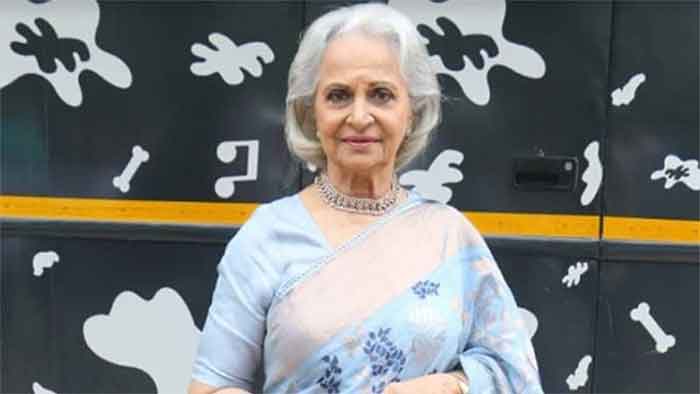
The 20 years after independence constituted the most creative phase of Hindi cinema when some of the best films were made. The leading actors of this era had an enduring impact which continues to this day. Four of the best and most popular heroes, with very wide impact on society (Ashok Kumar, Raj Kapoor, Dilip Kumar and Dev Anand) have all received the Dada Phalke award, the highest award of Indian cinema. At the same time none of the five greatest heroines of this era, with equal talent, popularity, achievement and high social impact, have received the coveted Dada Phalke Award yet. These five heroines include Waheeda Rehman, Meena Kumari, Nargis, Nutan and Madhubala. Of course there were several other very talented heroines during this period such as Mala Sinha, Sadhana and Vyjanthimala, to mention only a few, but the five actresses are in a class by themselves and have left such an enduring impact with countless admirers to this day that their neglect so far for the top award must really be considered a matter of serious gender bias.
Among these five also Waheeda Rehman has been perhaps the most versatile, as is evident from her many great acting triumphs in films like Pyasa, Kagaz ke Phool, Guide, Mujhe Jeene Do, Teesri Kasam, Khamoshi and Reshma aur Shera. She worked with Satyajit Ray in Abhijan, and also acted in Telugu, Tamil and Malyalam films. In fact she started with Telugu films. Then when she came to Bombay to work in Hindi films, she was asked to adopt a popular screen name which she refused to do and insisted on retaining her original name. On top of that she also insisted on getting a signed contract that she will not wear a dress that she does not consider to be decent. Some senior film unit members who were used to having their way even with established artists were angered by her cheek and wanted her to be dropped, but she insisted on having her way and with her very first film as a heroine in Hindi (Pyasa), she established a reputation of great acting which has never left her. She has shown courage in coming out of very difficult situations. She still continues to act once in a while in elderly roles. She has been an accomplished dancer and in more recent times has been active as a philanthropist as well.
Meena Kumari has been repeatedly described as the one and only Meena Kumari whose acting style and the way of speaking her dialogue was entirely her own; no one else could even imitate it and its grace and charm. Some of her better-known films including Pakeezah and Sahib, Bibi aur Ghulam can still attract big audiences. Her other notable films include Baiju Bawra, Aarti, Dil ek Mandir, Chitralekha, Phool aur Pathar, Manjhli Didi and Mere Apne. She was an accomplished dancer and a sensitive poet. She worked in films right from early childhood to her last days.
Nargis had a very special role in the post-independence years as a representative of women finding a wider role in society, trying to combine the best of tradition and modernity. Her roles opposite Raj Kapoor in many films were hugely popular with the audience those days and are still cherished. These include films like Barsaat, Awara, Chori-Chori and Shri 420. Her other notable films include Pardesi, Raat aur Din and then there is her unmatched, all-time great role in Mother India. If she had done only this one single role in her entire film career she would still be remembered for that.
Nutan was a versatile actress, excelling in light as well as very serious films. Her most notable films include Sujata, Anari and Seema. However the biggest achievement of her acting career remains Bandini, where her role was at times very tender and at times very complex. She did full justice to this difficult role, helping to make Bandini one of the all-time great films.
Madhubala brought happiness and joy to millions of her fans and admirers, even though her own life was very tragic for the great part due to serious health problems. She died at a young age, but not before giving us such great films as Barsaat Ki Raat and Chalti ka Naam Gaadi. Then there was that all the time great film Mughal-E-Azam where we see Madhubala in all her glory as a great heroine and as an accomplished dancer, even though health problems had started taking a toll.
All these five great actresses carried themselves with a lot of grace and influenced Indian society in much wider ways than is commonly realized. Their millions of enduring followers would look forward to the day when they are honored with the highest award of Indian cinema.
Bharat Dogra has been involved in writing about the social aspects of cinema. His latest book, with Madhu Dogra as co-author, is Hindi Cinema and Society, published by Saptarishi, Delhi.











































